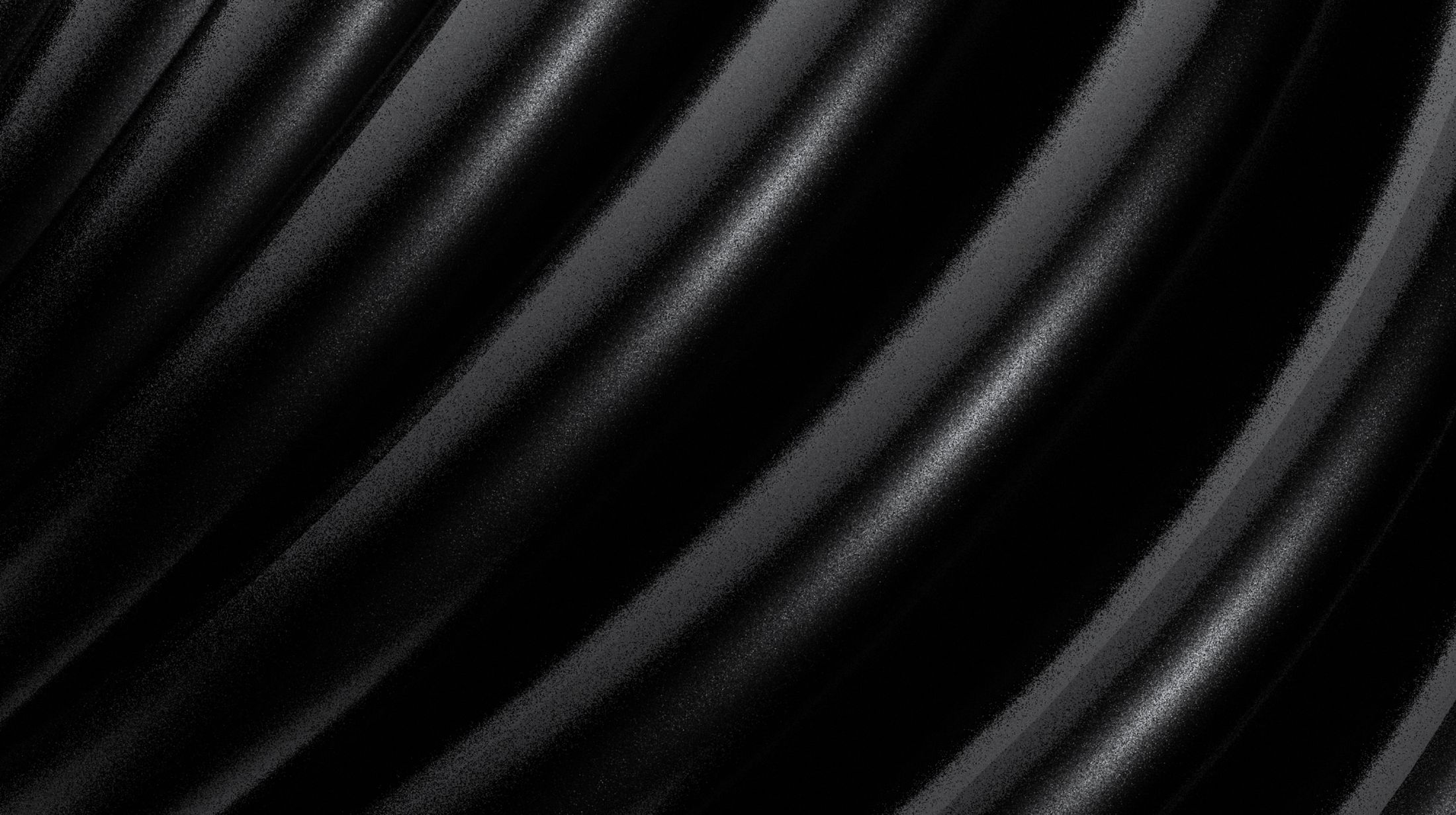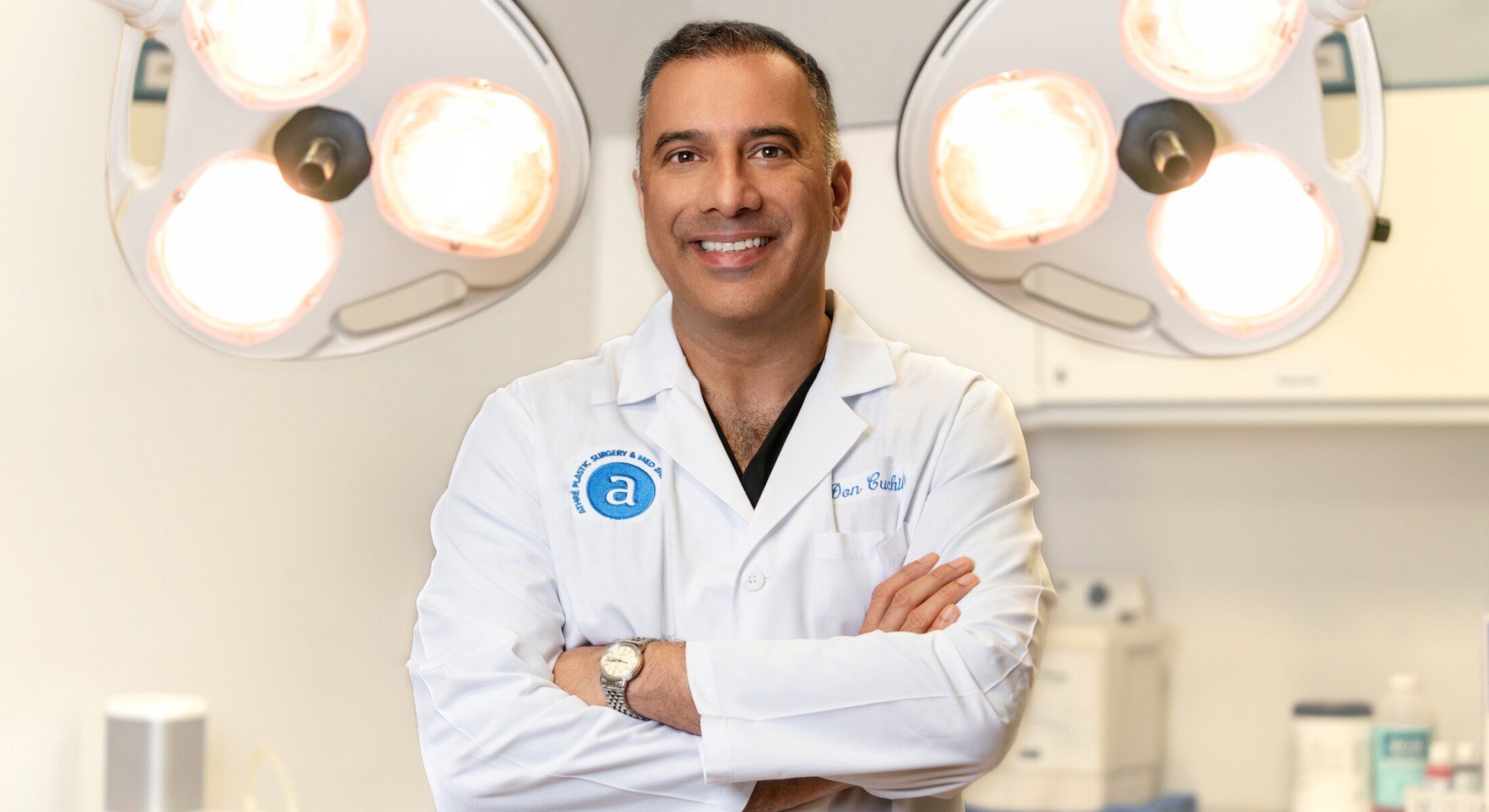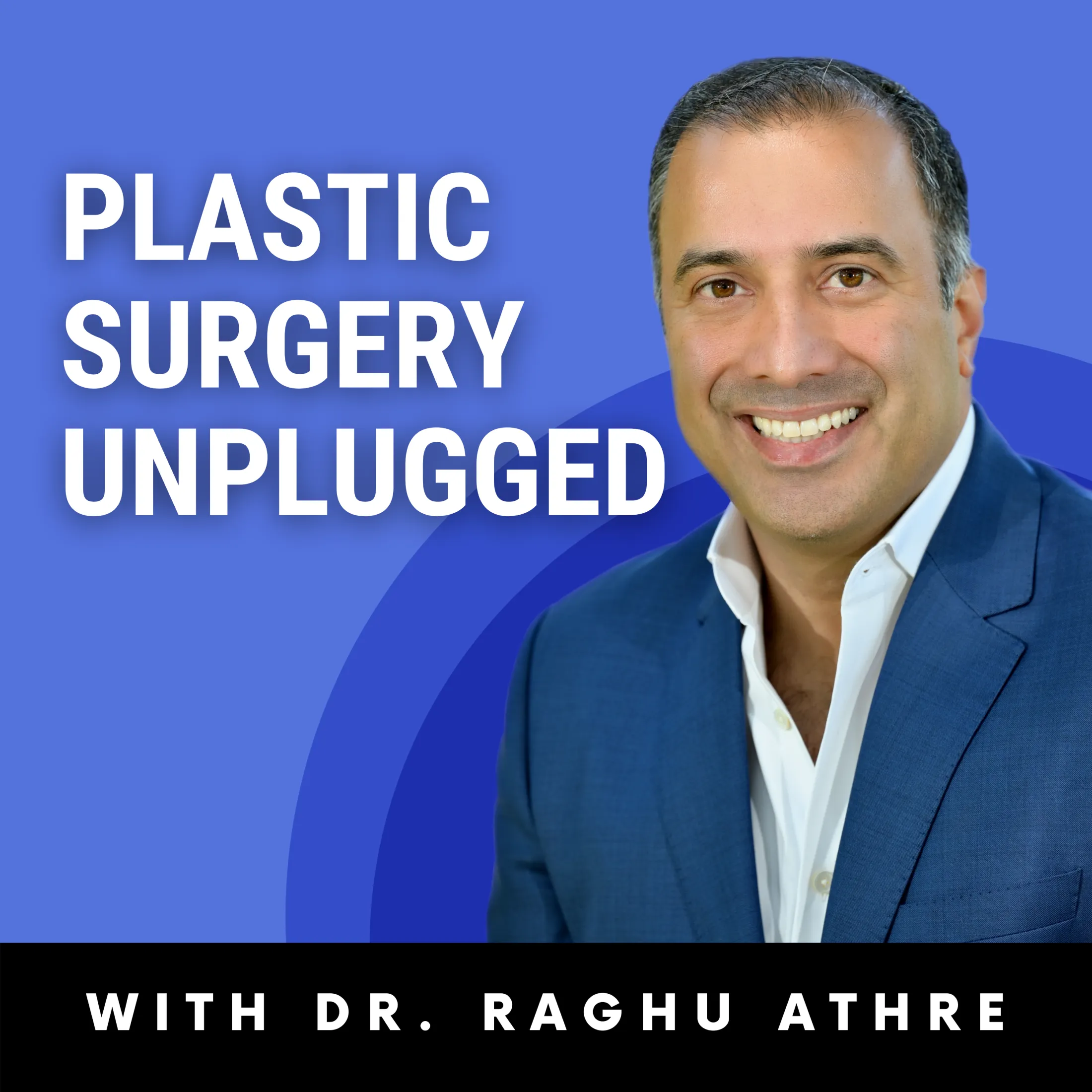

Plastic Surgery Unplugged
with Dr. Raghu Athré: Episode 3

We have a brand new episode of Dr. Athré’s podcast available to listen to now! “Plastic Surgery Unplugged with Dr. Raghu Athré” is our new podcast that aims to share tips, tricks, and behind-the-scenes stories and interviews with plastic surgery professionals and patients. In episode 3, Dr. Athré interviews patient Aura about her positive experience going under local anesthesia for a facelift.
Listen on YouTube, Apple Podcasts, Spotify, Podbean, or Google Podcasts—and don’t forget to check out our incredible interviews with Dr. William Silver on episode 1 and episode 2.
Don’t forget to subscribe and share with friends and family. Here’s episode 3: “Facelifts Under Local Anesthesia.” Thanks for listening!
[Audio transcription via Rev.com]
Dr. Raghu Athré:
And I’m going to just go ahead and introduce it. This is, I think, our third or fourth podcast now. The first couple of podcasts we were doing was on history of various types of procedures. This is our first podcast we’re doing with an actual patient. So, congratulations.
Aura:
Thank you!
Dr. Raghu Athré:
To the whole world out there, this is Aura. Aura is one of my patients, and I’m going to ask you a few questions, Aura. You can introduce yourself and so I’m going to start with first, why don’t you introduce yourself. Tell everybody what you had done, and then I’ll get a few questions [for you].
Aura:
Okay my name is Aura. I’m 66 years-old. I’m a personal trainer and I’m very concerned about how I look and everything. So I was looking for… It looks better because [at] 66 years-old, you can already see that I can work on my body, but not on my face.
So, I knew about Dr. Athré because my younger daughter, a few years ago, she got her eyes done with him and loved the results. So I decided to go to see Dr. Athré. And these are my results after my surgery. I’m very, very, very happy, very pleased, very pleased. First of all with him. He’s a kind of funny guy, but he’s fantastic, and his office.
Dr. Raghu Athré:
Okay. So, thank you so much for the compliments, Aura, but now I have some very serious questions for you. Okay. So, first of all, tell everybody what procedures you had done.
Aura:
Okay. I get done the full facelift. I had my lips [inaudible 00:01:51]
Dr. Raghu Athré:
Lip Lift, yeah.
Aura:
And I have that little chin implant here…[to make] me look younger on my neck.
Dr. Raghu Athré:
Okay. Now here is the big question. I’m going to introduce you. So you are one of the patients that I’ve done all of this under local anesthesia. So for the world, basically, local anesthesia means numbing up the face and doing it with the patient moderately awake. So they’re pretty much awake for the entire procedure.
Now, you came in for a consultation. I told you I am going to do this with you awake. What did you think?
Aura:
Well, [it] was kind of scary because I said, “I know that a lot of work needs to be done.” But at the same time, I was kind of excited because…maybe I can see what he’s doing, but I was kind of scared. But my experience was pretty good. I can tell you about it.
Dr. Raghu Athré:
Okay. So I think this is very normal and this is exactly the reason why I brought you here today. So I want the world to hear from a real patient without cue cards here. I’m not cueing you. I’m not telling you any of these things. Right?
So now it’s normal to feel anxious. Okay. Now, but were you in pain? Tell the world like, kind of go through that day. Cause it was a long day. I think everything took like eight hours or nine hours.
I’ve seen tons of patients after you and their eyes get this big when I tell them I’m going to do it under local anesthesia, and it’s going to take about eight or nine hours. That’s the point where suddenly their heart goes dun dun dun.
So if you could talk to them and tell them: what did it feel like? And be honest, tell them “I’m nervous. This is what hurts. This is what didn’t hurt. This is what I felt like.” Go through that process.
Aura:
Okay. I want to be honest to you. I love it. To me, I don’t think it was just me, but to me it was great. I was kind of scared. So I got there in the surgery room. He’s talking and talking to him. I don’t feel pain at all. Sometimes I almost fell asleep. And [I] remember he [would] tell me “Aura, are you okay?”
I was just talking to them and listening to them. I didn’t feel pain, maybe a little uncomfortable pulling it from here, putting [it] there. I even asked one time. [inaudible 00:04:23] “That’s my skin?” And he said, yes. So he was pulling there.
Aura:
So then in the middle of the surgery, I think—because…I was falling asleep and waking up again—they let me go to the bathroom. I went with the nurse to the bathroom and, more than that, I was eating a cupcake. Okay. He offered me [a cupcake] and said, “we have cupcakes in the back.” I said, yes, I want it.
I was eating a cupcake, I drank some water, and went back to the surgery. Sometimes sleeping, sometimes talking to him, sometimes smiling.
Fantastic, honest, honest. I don’t have pain. I was kind of uncomfortable, like I’m telling you. And it was okay. I walked to my car with my daughter.
Dr. Raghu Athré:
I don’t recommend that, by the way. Okay. She’s a special case and we do walk down with her. Okay. I just want the world to know that. Okay?
Aura:
Yes.
Dr. Raghu Athré:
Okay.
Aura:
And now I can see you are using a wheelchair for the patient because my daughter, by the way, my younger daughter, got the same surgery and more than that. And I saw she was in the wheelchair or something like that.
So…I got another surgery. I got shoulder surgery. I needed to use that anesthesia, the complete anesthesia. I hated it. You know, I hate it, the time you wake up and you feel nauseous. I didn’t feel any, any, any of that [with Dr. Athré.]
I even enjoyed it because Dr. Athré, I would tell you, Dr. Athré, I enjoyed seeing him doing the surgery because he’s talking, he’s moving. He’s just, he’s fun. And when I see my results…I’d do it again if I had to.
Dr. Raghu Athré:
So I’m going to tell you, okay, so now you’re going to get the chance to hear from me why I like to do it under local [anesthesia]. Okay. So local [anesthesia] actually is more difficult for me than doing it under general [anesthesia]. Because if you were asleep, I don’t have to ask you 20 times, “Are you okay? Are you okay?” That’s number one.
Number two, I don’t have to stop in the middle and let you go to the bathroom [or] let you eat. I don’t need to do those things. So from that standpoint, local [anesthesia] actually is more difficult. It takes longer. I have to be a lot more careful with making sure you’re not in pain.
But this is what I like from the surgery side of things. You get to participate. So when I tell you, “Aura, lift your head all the way up. Aura, can you move your head all the way this way?” From that standpoint, it makes my life easier. And not only does it make it easier, what I’ve noticed is that the patients get a better result.
Dr. Raghu Athré:
So I had surgery about a month and a half ago. I had some sinus surgery done and I had to be asleep to have the surgery done. I hate that feeling, like I don’t remember anything for like one full day. Barbara has told me that I sent them text messages after surgery saying, “I’m okay. Is everything okay?” I don’t remember sending the text message.
I have no…like what happened is just a blank slate for me. And that’s such a weird feeling for me. I don’t like not being in control. Okay. So now you said it was easy, all that kind of stuff, but now part two.
It took eight and a half hours. Okay. Was that tough? I mean, or did you just not know that it was [that long]? Cause I’m not the patient…So you have to tell me from the patient’s standpoint: what does it feel like to be there for eight and a half hours?
Aura:
Well, at times you don’t feel it that much because sometimes you fall asleep, a little sleep and you wake up and you open your eyes again. To me, I don’t feel that it was that long. I know it was that long. Okay. And, I…want to say I got cold, like at one time. So they put [me] in a blanket. So I got my blanket. I was comfortable. That was fine.
Dr. Raghu Athré:
So every patient, I’ve done probably more than a couple of hundred this way. And this is what I’ve noticed about patients. Every patient is a little different. Okay. So for example, you. You were like, no matter how much medicine I gave you, at the end of the case, you were ready to walk and you were bum bum bum bum bum.
Aura:
Yes.
Dr. Raghu Athré:
Okay. So it’s just different. People are different. So, first thing, I will not do local anesthesia on a guy. Okay. Only on women.
Aura:
Really? Why?
Dr. Raghu Athré:
Two reasons. First of all, women are way stronger. Okay. So that’s A.
So you remember what I asked you? I asked you a series of questions to see whether or not you could do local anesthesia. I asked you, have you had any babies? Okay. Then I asked you, have you had any dental procedures? So if you’re a woman, have had a baby, have had a dental procedure or something like that, I think you’re going to do just fine. Okay.
Guys, I’ve done one or two guys under local, and I mean the first shot it’s like, “Oh my God, ow, wait, wait, wait, wait.” It’s just not fun. Okay. And then the second thing is because guys have a little bit of beard, a lot more blood flow to the skin.
Dr. Raghu Athré:
So when you do the surgery, what happens is there’s a lot more bleeding with men. So I think that they’re just better to do that under when they’re asleep, because A, they’re not as tough and B, with more bleeding, the two combinations, this is very difficult to do under local [anesthesia].
So now, okay. Is there any part of your procedure at any part where you said, “Hey, you know what? I really wish, this part, I wish I could have been asleep for.”
Aura:
Uh-uh (negative).
Dr. Raghu Athré:
No, you’re doing it. You’re doing [it] awake the whole way.
Aura:
Oh yes.
Dr. Raghu Athré:
Okay. Okay. All right. So what questions do you have for me? So now you have—because this is a different perspective—you have now the perspective where you’ve been a patient and you know, as a patient, it’s a little different, right? There’s things you ask your doctor, there’s things you don’t ask your doctor, these little things.
Now we’re taking off the doctor hat, we’ve taken off the patient hat. You can ask me anything. What would you ask me now, in retrospect about your case, you [could] say, “I wish I had…” You could tell me, “I wish you did this differently” or something to that effect. Anything.
Aura:
No, I’m very pleased with my surgery, honest.
Dr. Raghu Athré:
Okay.
Aura:
But I’m a hundred percent there. The proof is, my sister got it after me. [And] my two daughters are “part of the family” already with all these things.
Dr. Raghu Athré:
This is what I told them. I said, next family reunion. I need an invite. So at least I can come for the wine and the food, right?
Aura:
Now, to me, it was a very good experience. Like I’m telling you, I have another surgery, no plastic surgery done, but I have shoulder [and] knee surgery. And I hate that surgery room, that general anesthesia. No, I enjoyed this.
Dr. Raghu Athré:
It’s scary. I mean, I had surgery and I’ll tell you it was nerve wracking for me. It’s like this, you’re going into a box, right? And everybody has all their stuff. It’s more nervous.
And I feel that if we can do this under local [anesthesia], I think that it allows me to be able to talk to you more, tell you what’s happening. So you’re also more in control of your surroundings.
Aura:
Exactly. And your [assistant], she’s wonderful, I can feel her peace. It was a very good experience. Yeah.
Dr. Raghu Athré:
I mean, Dee is amazing. She’s awesome. She does her job very, very well. Yeah. All right. Aura, thank you so much for your time. I really appreciate it. Thanks for sharing your experiences. It really helps.
I mean, I know that this local anesthesia thing for a lot of patients, when I describe it, is scary to them. I know that. And you know, I hope that in the future that these patients hear from people like you… If I can bring their scariness [down] from 95 to even 93 or 89, it’s beneficial.
Aura:
You’re welcome.
Dr. Raghu Athré:
Thank you.

